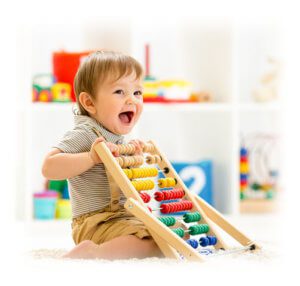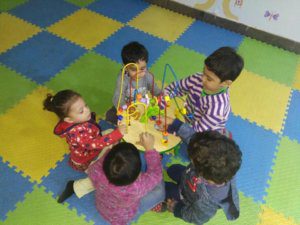Is Labeling Children Good or Bad?
Some children seem to be socially adept from birth, while others struggle with various challenges of social acceptance. Some children make friends easily; others are loners. Some children have self-control, and others have quick tempers. Some are natural leaders, while others are withdrawn.
In the last ten years, psychologists have become increasingly aware that social skills can, should be taught and believe environment can play an important part in shaping a child’s social development. With Social Skill development shy children can become more outgoing, aggressive children can learn self-control, and children who tend to be social isolates can be taught how to make friends.
There is no question that children with better social skills have a significant advantage in life. They not only experience the rewards of positive relationships, but they do better in school, have a better self-image, and in general, are much more resilient as they face life’s inevitable challenges.
Making friends can be a challenge for some children and adults with special needs. They may
lack confidence or have difficulty developing the necessary social skills. But there are ways you
can help teach your child to overcome their fears and make friends. When you are teaching the
social skills to make friendships, try breaking them down into small, easy steps. Give plenty of
encouragement for each goal your child reaches.

The Social Skills All Kids Need to Learn:
The proper social skills that need to be taught can be divided into three stages: determining the social skills that need development, figuring out ways to teach the skills, and reinforcing lessons with the right resources.
Don’t worry if your children don’t fit that mold or aren’t winning any popularity contests. Like any other skill, social skills can be learned, and, besides that, "being social" or outgoing isn’t the end goal in itself. What is important, however, is that kids are able to form meaningful bonds with others, can empathize and interact with others appropriately, and have the skills to adapt in uncomfortable situations
Teaching social skills to your child is not a one-day thing like most people presume it to be. At times, it can even take weeks stretching into months before your child learns and starts using the social skills you will teach them. As such, you need to be very patient and let your child take as much time as they practice how to use the skills you have taught them. Avoid getting frustrated or irritated when your child seems to be slow to learn but encourage them to keep practicing what you teach them. Express love towards them so that they see that you appreciate and acknowledge the steps they are making.
Rewards and other forms of appreciation like gifts go a long way in motivating and encouraging the child to improve their interactions and relations with other people. Rewards also send a message to your child that you appreciate their efforts and the progress they are making. In whichever way you decide to encourage them, you should always aim for one thing: to motivate them to learn and improve their social skills.
IPSAA takes the effort to train every child’s Social skill through various curriculum activities in variant ways through guiding every child…..

- How To Greet Others
- Following Instructions
- Asking For Help
- How To Get Others Attention
- How To Disagree Appropriately
- How To Accept NO For An Answer
- Study Child’s Behaviour Patterns
- Teach Child To Listen To Others And Follow Steps And Rules
- Take Turns When You Talk
- Get Along With Others
- Stay Calm With Others
- Be Responsible For Their Behavior
- Do Nice Things For Others
- Express Their Needs And Feelings Without Attacking
- Involving And Participating Socially
[spu popup=””]Enroll Your Child Here![/spu]


